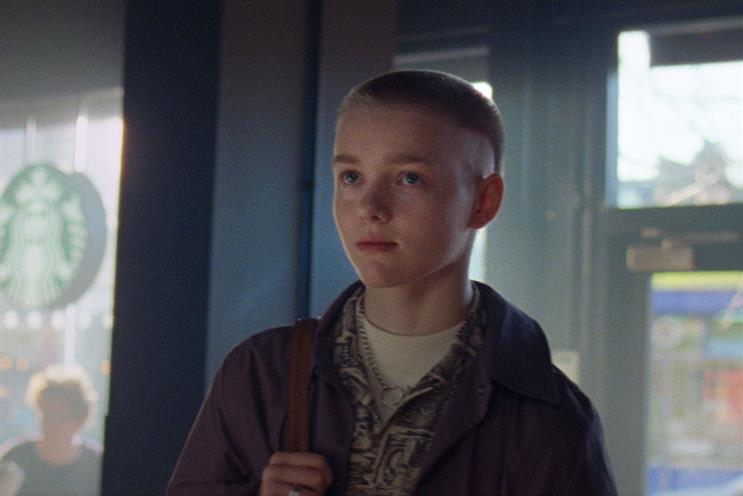
Starbucks tells the story of a transgender person trialling their new name in the winning campaign from Channel 4’s fourth annual Diversity in Advertising Award.
Launching on Sunday (2 February), the ad is about the life-changing moment when transgender and gender-diverse people use their new name in public. It also captures occurrences of deadnaming – when someone, intentionally or not, refers to a transgender person by the name they used before they transitioned.
Created by Iris, "What’s your name" follows James, who faces challenges as he transitions and people continue to call him by his birth name, Jemma. The story culminates when he goes into a Starbucks store and orders a coffee, using his true name in public for the first time. When the barista calls out "James", which is written on his coffee cup, it is a moment of acceptance and recognition.
The work was inspired by the real-life stories of some transgender YouTubers in the US who have talked about trying out their new names in Starbucks because it is seen as a safe space, away from the potential judgment of family and friends.
It was created by Eli Vasiliou, Richard Peretti, Giulia Frassine, Anny Heyden and Matt Gray, and directed by Nicolas Jack Davies through Sweetshop.
Along with the film, Starbucks is partnering Mermaids, which supports gender-diverse children, young people and their families, and aims to raise at least £100,000 for the charity. Limited-edition mermaid cookies will be sold in more than 975 Starbucks stores nationwide, with a portion of every sale going to expand the organisation's helpline services for young trans people and their families.
In addition, moving portraits of transgender people explaining the stories behind their names will run across outdoor, digital, video-on-demand and in stores.
Starbucks and Iris won Channel 4’s Diversity in Advertising Award last year for this work. The annual award grants £1m worth of airtime to the best campaign idea featuring diversity.
This year’s theme was LGBT+ representation, while previous iterations of the contest have challenged brands to portray disability, hidden disability and gender in their ads.
A YouGov study, commissioned by Channel 4, found that LGBT+ people featured in 3% of TV ads last year, despite making up at least 6% of the population. Only 0.3% of ads featured a transgender person, while the transgender community makes up an estimated 1% of the population.
Starbucks has a history of supporting the LGBT+ community. It is a partner of Stonewall and in 2016 it joined more than 200 other business leaders in the US to urge equal treatment for LGBT+ people.




.jpg)
.jpeg)
